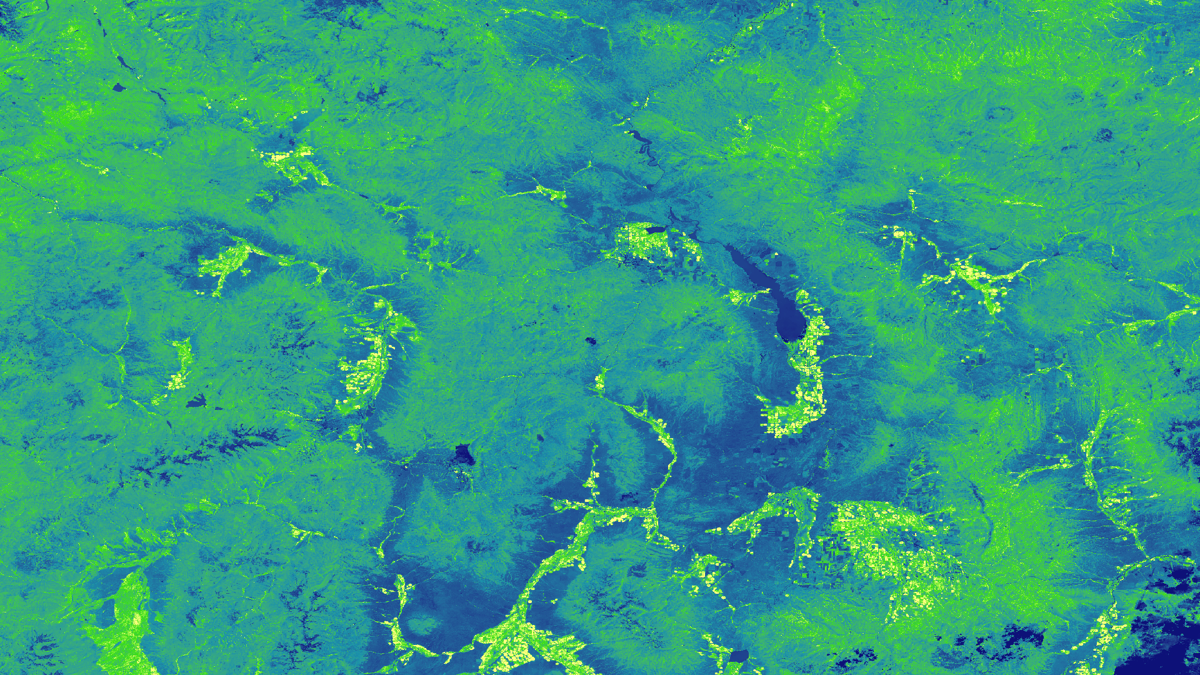
NASA

NASA
Tasseled cap greenness transformation derived from Landsat 8 imagery over lodgepole pine forest in the Intermountain West study area
Completed Projects
Mary Ellen Miller
Wildfire is a known agent of change significantly altering vegetation and soils of burned watersheds. Quantifying and understanding the dynamic impacts of wildfire are vital for...
Ashley Ballantyne
Fire and other climate driven disturbances are shaping the future of our forests. Given the vital ecosystem services provided by forests, it is crucial that we manage forests for their continued existence under...
Julianne Liu
Team: Ritisha Ghosh (Project Lead), Richard Kirschner, Ria Mukherjee, Raina Monaghan
Summary: Wichita, Kansas is experiencing a host of climate threats, particularly extreme heat manifested through Urban Heat Islands (UHI). Heat is unevenly distributed within cities due to factors such...
Julianne Liu
Team: Nash Keyes (Project Lead), caleigh McLaren, Nati Phan, Dalia Vazques
Summary: Milwaukee’s neighborhoods experience increased social, health, and ecological stress from the Urban Heat Island (UHI) effect due to changing land cover and climate. Extreme urban heat disproportionately...
Caroline Williams
Team: Heidi Rogers (Project Lead), Mistaya Smith, Maggie Mason, Anish Holla
Summary: Deforestation, a significant contributor to carbon emissions, is a major driver of climate change. To best inform climate mitigation, decision-makers must have accurate estimations of carbon emitted during...
Kathryn Caruso
Team: Kelli Roberts (Project Lead), William Hadley, Daniel Littleton
Summary: Wildfire potential monitoring, which is increasingly vital under climate change-induced droughts, could be improved by incorporating remotely-sensed soil moisture data. To better understand the connections between soil moisture and...
Brianne Kendall
Team: Jennifer Ruiz (Project Lead), Coral Del Mar Valle Rodríguez; Viviana Lademan; Aaron Whittemore
Summary: Central America is experiencing rapid and unregulated urban expansion, which is contributing to an increase in socioeconomic and environmental risks, including inequities in...
Brianne Kendall
Team: Hanna Jung (Deliverables Lead), Ross Kalter (Technical Lead), Ameilia Untiedt, Cristina Villalobos-Heredia
Summary: In 1992, Central America and Mexico drew up an agreement to establish the Mesoamerican Biological Corridor (MBC) which defines natural corridors to connect nearly 600 protected...
Tyler Pantle
Team: Nora Carmody (Project Lead), Dain Kim, Kameron Lloyd, Ruby Nagelberg
Summary: In pluvial flood events, stormwater runoff can pollute ground and surface water, posing a threat long after the rain has ceased. In Wyandotte County, Kansas, this contamination...
Tyler Pantle
Team: Suhani Dalal (Project Lead), Lily Gray, Yixuan Li, Jane Zugarek
Summary: The Gulf of Maine has a history of harmful algal blooms (HABs) that have increased in frequency and intensity in recent years, raising concerns in the...